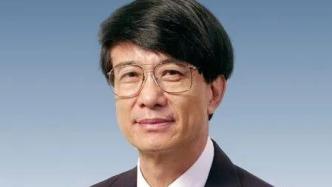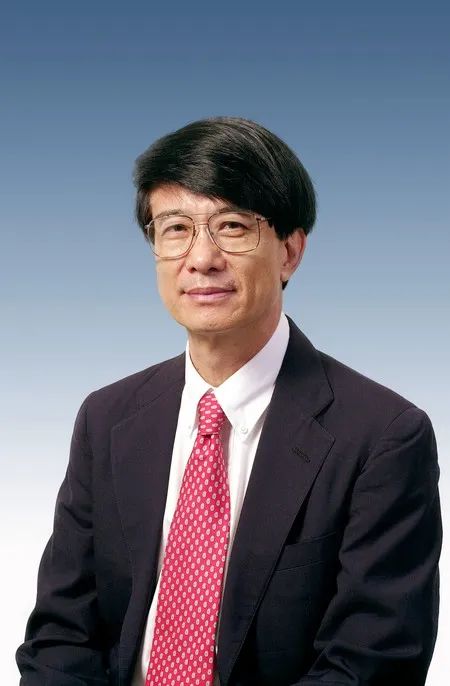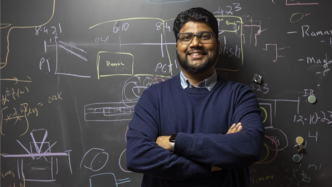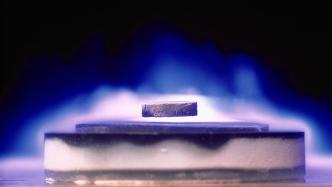
On March 8, Ranga Dias, a professor at the University of Rochester in the United States, announced that his team had achieved room temperature superconductivity at near-atmospheric pressure.
At that time, as a pioneer in the field of international high-temperature superconductivity research, the 82-year-old famous physicist Zhu Jingwu "squeezed" in the third row of the venue and listened to Dias' research report on the spot. After returning to the laboratory, he immediately carried out related experiments.
In an exclusive interview with "Chinese Journal of Science", although Zhu Jingwu had many doubts and puzzles, he was still optimistic about the future of room temperature superconductivity. He hoped that this was not the result of "artificial data manipulation", but more hoped that this was "rare" Great discovery."
He believes that rigor and earnestness are the most important attitudes in scientific research, and he also criticizes the unhealthy atmosphere brought about by excessive pursuit of impact factors in the scientific community. Today, at an octogenarian age, he is still "taking risks solidly."

Zhu Jingwu. Source: Hong Kong Academy of Sciences website
"The Dias team's operational thinking is correct"
"China Science Daily": You listened to the report at the scene, what was the scene like? How do you feel?
Zhu Jingwu: Previously, the organizers may not have expected so many people, and arranged a room that can only accommodate 100 people. There were about 50 people coming in outside, and the order was a bit crowded at first, so I sat in the third row.
Domestic enthusiasm for scientific discovery is very high, which is a very good thing. In fact, 6 months ago, the information that Professor Ranga Dias of the University of Rochester in the United States had realized room temperature superconductivity had already begun to circulate.
I think there are two important things about this announcement. On the one hand, the superconducting temperature reaches room temperature; on the other hand, the pressure can drop to 1 GPa. In the past, this has not been possible scientifically, and it would be remarkable if it were proven correct.
"China Science Daily": After the news broke out, almost all professionals took a cautious wait-and-see attitude or even expressed deep doubts. Recently, several well-known superconducting research teams in China have successively published the results of repeated experiments, all of which gave negative conclusions. Is your team also replicating experiments? How is the result?
Zhu Jingwu: We have already started related work, hoping to detect the duplication of several key results in the report.
"Chinese Journal of Science": What details do you pay attention to?
Zhu Jingwu: I am concerned that the samples displayed by Ranga Dias show red color at room temperature superconducting temperature, which is a rare metal color.
In my opinion, this is a serious doubt, metals are generally opaque. In addition, he mentioned that the resistivity of superconductivity is 0, but measuring the resistivity of such a small sample is very difficult, almost impossible.
He also mentioned that when they are processing data, basically all results need to be deducted from the background to see the superconducting phenomenon. If we only look at the original data, we cannot get his results. Generally speaking, to deduct the background background, there needs to be a certain basis to prove the rationality of doing so. We don't know what his intention is, and it is possible that he really discovered a great phenomenon.
In the past, we thought that it could be applied when the temperature of liquid nitrogen was above 77K (-196 degrees), but when preparing materials, we found that it was difficult and the cost was too expensive. Later, after overcoming the temperature and bringing the temperature to room temperature, it was found that a very high pressure had to be applied, which caused problems again.
Therefore, the team of Professor Dias raised the temperature to only a few degrees and lowered the pressure a lot. This idea is correct.
"Major discoveries, cannot easily draw conclusions"
"China Science Daily": You mentioned that the public's enthusiasm for science is a good thing. There is a problem. Science is constantly revised in the process of trial and error and mutual debate. However, news like this "sensation" in the physics world has also triggered It has attracted the attention of shareholders and investors. So can science still go through trial and error normally, and does science still dare to make mistakes?
Zhu Jingwu: "People are not sages, and no one has faults." It is not a crime to make mistakes, but it is a principled error to deliberately fabricate data.
"China Science Daily": In recent years, we have seen from time to time in the field of physics that a result published in top journals such as "Nature" and "Science" is withdrawn after one or two years or a period of time. This is science. The process of development? Or is it a matter of scientific research atmosphere?
Zhu Jingwu: I think there are both. Yes, this is part of the scientific process. Unfortunately, this has become more and more frequent in recent years.
But one issue I want to mention is scientific journals.
Generally speaking, whether a journal can run well depends on whether it can find good articles. But only when the journal is "famous" can it attract good articles.
In the 1990s, the editor-in-chief of a journal headquartered in London, England invited me to visit the headquarters. The editor-in-chief told me how to make the magazine "famous"? Because there were not many people submitting articles to this journal at that time. He thought of a way. They chose two important research directions that were very "hot" at the time: high-temperature superconductivity and life sciences. At that time, the United States invested a lot of funds in these two fields, and there were many people engaged in research and papers, and the competition was fierce. The journal plans to publish articles "expeditiously".
In fact, journal review requires a process. For Physical Review Letters, a high-level journal in the field of physics, their review is very rigorous, ranging from a few weeks to a few months.
Every second counts in the academic world, especially for research projects that are very competitive, they are willing to publish articles in journals that publish faster. Then it went up.
This is a vicious cycle. More and more people submit articles to these journals, and then everyone starts to pay attention to the so-called "impact factor", which is actually very bad for the development of science. Nowadays, many people write short, flat and fast articles. (It seems) the faster the better, it doesn’t matter if you make a mistake. In the short review time, it is difficult for journals to review comprehensively.
There are too many articles, and the final concern of funding units and individuals is not the scientific research itself, but the number with a high impact factor.
"China Science Daily": When you do research and publish articles, what do you do?
Zhu Jingwu: When we submitted the article to Physical Review Letters, an authoritative journal in the field of physics (Editor's Note: The research team led by Zhu Jingwu announced for the first time that it had published many achievements such as superconductors above 90 K in this journal), the journal industry "quickly published articles "The trend is just beginning to emerge.
At that time, although we did a lot of experiments, it was shown that it was a superconductor. But during the week of waiting for the review, every time I passed by the office of my colleagues, I would ask them: Can you think about it for me, can you find a proof that this is not superconducting? It also explains the results we see.
Until the official publication, we have been looking for counterexamples. I told my colleagues that if I make a mistake, I will lose my future as a high-temperature superconductor in my life, and yours may as well.
Therefore, we must be particularly cautious, especially for major discoveries. We should not let it pass easily or draw conclusions easily, and we must constantly question and overthrow ourselves.
"China Science Daily": How do you view the harm of academic fraud?
Zhu Jingwu: In the Bell Labs falsification incident that caused a global sensation in 2000, the main character was Schoen, who used forged and fictitious experimental data to publish a series of important results on high-temperature superconductivity in top journals such as "Nature" and "Science". He almost became my postdoctoral fellow at that time. Some people said, luckily not, otherwise I would be miserable. I said no. In my team, I am very cautious about such important results.
Rigorousness and seriousness are very important attitudes in doing scientific research. If fraud occurs frequently, it will also reduce the trust in the entire scientific community. This trust must be won and maintained by our own efforts, not given by others.
"Open your eyes"
"Chinese Journal of Science": You have been engaged in basic research for a long time. What do you think of organized basic research and free exploratory basic research? Which is the trend of the current international scientific research organization model?
Zhu Jingwu: In many cases, scientific discoveries cannot be predicted. Of course, a general direction is necessary. The process of scientific discovery often relies on the imagination, perseverance, and social atmosphere of scientists, not all rely on a large team.
As for organized scientific research, there are clear goals and a lot of funding is involved, and a large team may be needed to realize the research of ideas. In high-energy physics, for example, the first is the idea. Realization is of course also very important, but this is the second step, and the idea still depends on personal exploration.
In September 2009, when I was about to step down as the president of the Hong Kong University of Science and Technology, the president of the University of Houston flew to Hong Kong, hoping that I would return to the University of Houston full-time after I left office, and promised me $35 million in research funding to help me form a team and follow my own path. way to find room-temperature superconductivity.
Of course I am very grateful for the funding and help she provided, but, I said with a smile, what I lack is more brain power.
"China Science Daily": The process of free exploration is firm and lonely. From your experience, what should be done in the research of free exploration?
Zhu Jingwu: I am not a genius physicist, it is difficult for me to answer.
But I can tell you that my good teacher and friend, Mr. Yang Zhenning, and my father-in-law, Mr. Chen Shiingshen, have greatly influenced me. They emphasized keeping your eyes open, especially Mr. Chen always told me that to do something, you have to pay attention to all kinds of possibilities around you, not just one point.
Mr. Chen told me: Indifference leads to bright ambitions, tranquility leads to long-term goals, focus on research, and move towards your own direction. When I have a new idea, I try it right away. Success, failure to try the next new idea. I also often discuss with my colleagues and do experiments together. It is very happy to come here for a lifetime.
Of course, the times are different, and I see that young professors are under a lot of pressure to publish articles, apply for projects, evaluate teaching positions, and so on. In the United States, the pressure of scientific research is also considerable.
"You can take a little risk, but the key is to be normal"
"Chinese Journal of Science": What is the route of your team's current research on room temperature superconductivity?
Zhu Jingwu: We are taking a "distinctive route". Unlike others, by increasing the transition temperature at increasing pressure (usually on the order of 100 GPa), we hope to stabilize the high-temperature superconducting state produced by high pressure without pressure. We've made all sorts of serious measurements, and the first signs seem to be achievable, but it's hard to tell if it will work.
"China Science Daily": Will it be "adventurous" to do so?
Zhu Jingwu: This is a bit risky. If you follow everyone, you won't get to the front, at least you won't fall into the pit.
But I think I'm old enough to take a risk and try some experiments that might make more sense, and it's worth it. The key is to experiment with common sense.
It’s like repeating Dias’ experiment. Now someone in my group repeats his original method. I think it’s impossible, but we have to try it. I can’t say that I won’t do it if I say it’s impossible, because it’s my personal decision. Not quite right either.
In addition, we thought of a way to repeat their results as soon as possible, and also to obtain more information on this material (Lu-HN). If repeatable, we hope to use our method to stabilize room-temperature superconductivity without the need for pressure.
"Chinese Journal of Science": Are young researchers in your group willing to follow you on "adventures"?
Zhu Jingwu: Of course they also have a safe route. But I always tell young people that doing an important research is far more important than being a journal that caters to the so-called high impact factor.
But sometimes a big breakthrough requires the right time, place and people. Mr. Yang Zhenning told me that luck is very important. He mentioned that they did not catch up with the "golden age" of modern physics, and he was in the "silver age", and the "law of parity non-conservation" he discovered had a lot to do with this "time". What will happen in the next era is unknown. Some people say that it may be the "Bronze Age" of cuprate superconductors (high-temperature superconductors), and it may be so.
"Chinese Journal of Science": What is your goal now?
Zhu Jingwu: My goal is to maintain good health, and I hope the young people in my group can make something important.
In the US, we don't need to retire and continue doing research as long as we can breathe. I still work every day. I get up at 6 o'clock every day, then go to the gym to do exercise and swim for more than an hour, and then drive to the office at about 8:30, 7 days a week.
(The author Han Yangmei is a reporter of "China Science Daily". The original title is "Zhu Jingwu, the pioneer of high-temperature superconductivity: Excessive attention to the "top journal" and lost the scientific research itself")


